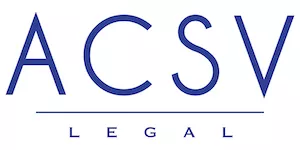On 15 May 2024, the Government of Vietnam issued Decree No. 52/2024/ND-CP ("Decree 52"), which replaces Decree No. 101/2012/ND-CP ("Decree 101"). Decree 52 has officially taken effect from 01 July 2024.
Decree 52 introduces several amendments to Decree 101 that are aimed at improving legal regulations on electronic money (e-money) to prevent and combat illegal activities in related fields. Additionally, Decree 52 seeks to promote efficiency, transparency, and updateability in non-cash payment services.
This legal update will highlight the notable provisions of Decree 52 compared to Decree 101.
1. Introductions of new concepts
1.1 Definition of electronic money
Decree 52 introduces a precise definition of e-money and provides its comprehensive framework, differentiating it clearly from virtual currencies. Under Decree 52, e-money is defined as the monetary value in Vietnamese Dong stored on electronic means (i.e., electronic wallets and prepaid cards) provided based on a reciprocal basis with the amount prepaid by customers to the banks, foreign bank branches, intermediary payment services (IPS) providers providing electronic wallet (e-wallet) services.
Banks and foreign banks' branched are allowed to issue and provide e-wallets and prepaid cards. Decree 52 requires an IPS provider that provide e-wallet services to maintain the total balance of the assurance payment accounts opened at bank not less than the total balance of all e-wallet issued to its customers. These services can only be offered to e-wallets linked to customers' payment accounts or debit cards.
1.2 Regulations on international payments
Decree 52 introduces regulatory provisions to clarify:
- the concept of international payments and international payments systems;
- the management role of State Bank of Vietnam ("SBV") in international payments;
- regulations of service provision from and to Vietnam, including financial switch services;
- approval processes for commercial banks and foreign bank branches to participate in international payment systems;
- responsibilities of involved parties in providing timely and complete information to state management agencies.
Decree 52 also sets out the specific requirements that commercial banks and foreign bank branches must satisfy to participate in international payment system. Within 24 months from the effective date of Decree 52, the banks that have participated in international payment systems before that date are required to satisfy such conditions and complete the necessary procedures to obtain approval of participation in international payment systems pursuant to the regulations of the SBV.
By providing framework of e-money and international payment, Decree 52 will play a crucial role in preventing and eliminating illegal payment methods issued by unauthorized organizations, as well as supporting competent agencies in management.
2. Supplementing regulations on payment intermediary services
Under Decree 52, IPS includes financial circuit switching services, international financial circuit switching services, electronic set-off services, e-wallet services, support services of collection and disbursement and electronic payment gateway services, which removed electronic money transfer support services compared to the old IPS definitions under Decree 101 and Circular No. 39/2014/TTNHNN dated December 11, 2014.
The decree also provides stricter conditions to obtain an IPS license, including capital adequacy, technical capabilities and personnel qualifications. The notable requirements include:
- must not be in the process of division, separation, consolidation, merger, conversion, dissolution, or bankruptcy;
- for financial switching services and electronic clearing services, the organization must not engage in any other business activities other than IPSs;
- must fulfil minimum charter capital requirements of either (A) VND 50 billion (approx. USD 2,000,000) for e-wallet services, collection and payment support services, and payment gateway services, or (B) VND 300 billion (approx. USD 12,000,000) for financial switching services, international financial switching services, and electronic clearing services;
- must comply with information system security level 4 requirements for financial switching services and electronic clearing services, or level 3 for other IPSs;
- must meet specific technical and personnel requirements.
IPS providers allowed to provide IPS before the effective date of Decree 52 may continue to operate according to the IPS license issued by the SBV until it expires
3. Public postal service providers engaging in non-account payment services
Public postal service providers are allowed to provide payment services that do not go through the customers' accounts, i.e., remittance, payment and collection services, after satisfying the technical and personnel requirements set out under Decree 52 and obtaining the SBV's written approval. Public postal service providers providing non-account payment services before the effective date of Decree 52 must satisfy the requirements specified therein and follow the procedures for obtaining the SBV's approval to provide non-account payment services within 24 months from 1 July 2024.
The content of this article is intended to provide a general guide to the subject matter. Specialist advice should be sought about your specific circumstances.



